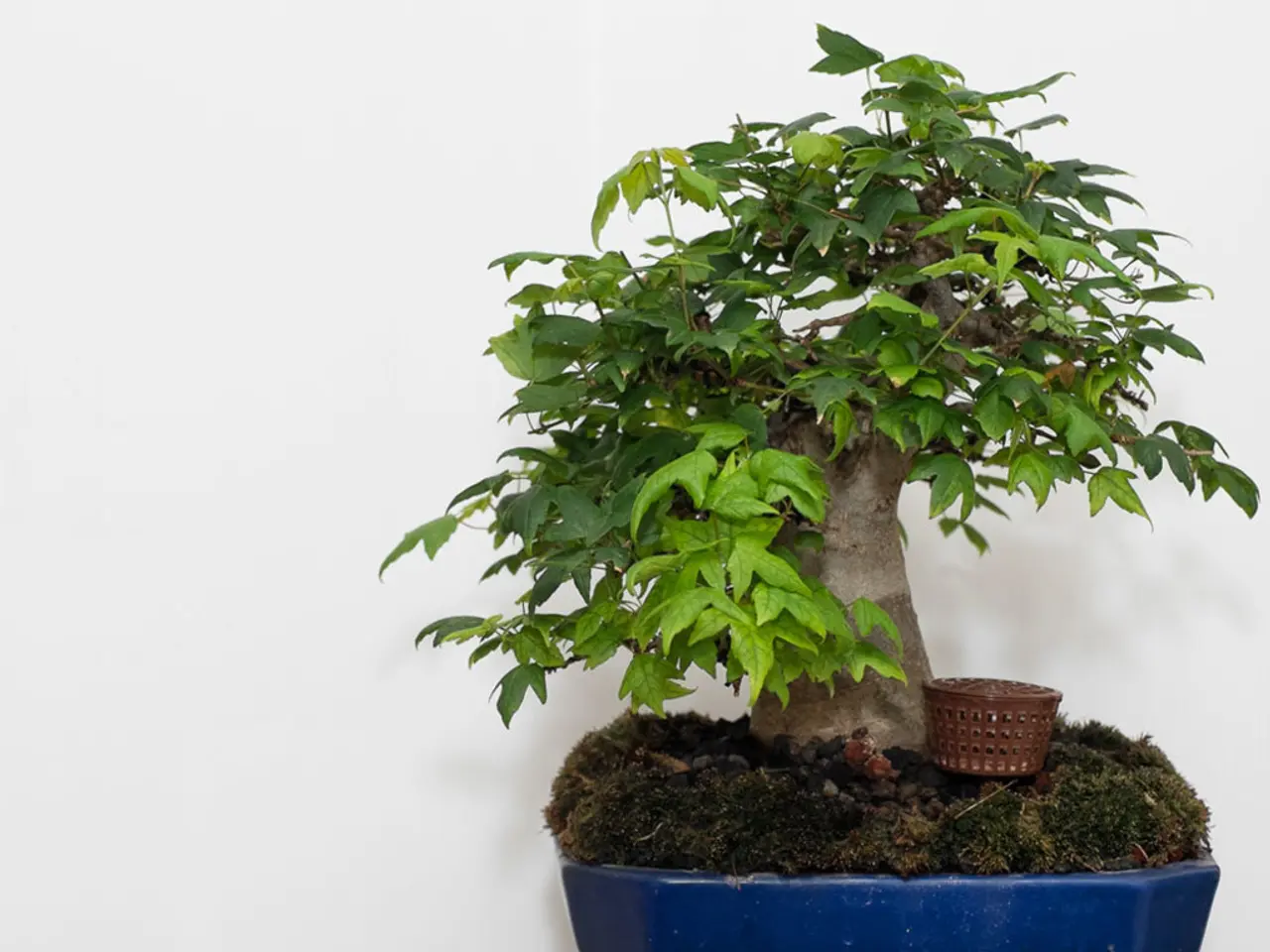Bonsai seed propagation: A journey of growth and endurance, requiring patience and persistence
In the art of bonsai, patience and persistence are essential to overcome propagation challenges and guide seedlings to healthy growth. This guide offers a comprehensive approach to propagating bonsai trees from seeds, detailing the optimal conditions required for a successful germination and development of young trees.
**Preparing the Seeds**
Soaking seeds is the first step in the process, with most seeds requiring a soak of 12 to 24 hours, depending on the species. Some seeds may require hot water, while others need cold water.
**Stratification (Cold Treatment)**
Many bonsai tree seeds require a period of cold to break dormancy and germinate successfully. This process, known as stratification, simulates winter conditions. Seeds are typically soaked in water first, and then stored in a refrigerator at about 4°C (39°F) for a specific period ranging from 2 weeks to several months depending on the species.
**Planting the Seeds**
Use a well-draining soil mix suitable for bonsai seeds, keeping it consistently moist but not waterlogged. Larger seeds should be covered with soil at least as thick as the seed to ensure proper germination.
**Germination Conditions**
After stratification, bonsai seeds generally germinate best under warm conditions around 60-75°F (15-24°C), depending on the species. Maintaining a warm, humid environment supports steady germination.
**Light and Humidity**
Bonsai seedlings generally require bright light after germination. Species like juniper bonsai thrive with at least 6-8 hours of direct sunlight daily to develop well, while for some bonsai like ginseng ficus, bright indirect light is best initially, with about 6-8 hours of light needed for healthy growth after germination. Moderate to high humidity aids seedling development. Mist the seedlings lightly during dry or hot conditions, and consider using a humidity tray filled with water and pebbles under the pots to maintain moisture levels.
**Environmental Control**
Environmental control, including humidity, indirect light, and air circulation, nurtures seedlings and promotes healthy growth. Temperature should be consistently maintained between 65-75°F (18-24°C) to foster healthy growth during germination. Watering and air circulation should be controlled precisely during the germination phase to avoid over-saturation or poor air flow.
**Caring for the Seedlings**
Verify good air circulation, allowing the seedlings to breathe and develop strong roots. Watering and air circulation require a delicate balance, as over-saturation and poor air flow can be detrimental to seedlings. A well-draining seed starting mix should be used to prevent waterlogged soil and promote healthy root development.
**Ideal Germination Conditions**
The ideal germination conditions include soil temperature control, high-quality potting mix, and precise moisture control. Bonsai seeds can germinate in indoor growing conditions, provided the seeds receive adequate light, temperature control, and humidity.
**Further Care**
Water carefully, as overhydration can be detrimental, and underwatering can stunt growth. Soil temperature for germination should be between 65°F to 75°F (18°C to 24°C) for most bonsai tree varieties. Prune judiciously, removing any weak or damaged growth to promote healthy development and encourage a strong root system. Provide gentle, indirect light, mimicking the dappled shade of a forest floor.
**Handling the Seedlings**
Handle the seedlings with care, avoiding excessive handling and transplanting, which can cause undue stress. A humidity level of 70-80% is ideal for germination, while indirect light is recommended to prevent scorching. Monitor humidity levels, creating a microclimate that replicates the misty veil of a forest glade, ideally between 50-70%.
**Fertilizing the Seedlings**
Fertilize sparingly, using a balanced, water-soluble fertilizer at half the recommended strength. Maintain a consistent temperature between 65-70°F (18-24°C), emulating the warmth of a spring morning.
By following these conditions, bonsai seeds have the best chance to germinate successfully and develop into healthy young trees suitable for further bonsai training and shaping. Tailoring stratification and care to the specific tree species is key for optimal propagation.
- For shopping essentials, consider investing in a high-quality potting mix suitable for bonsai seeds to ensure optimal seedling growth.
- If you're into fashion-and-beauty, protect your skin from the sun while caring for your bonsai seedlings with lightweight, breathable gloves.
- As you explore travel destinations, don't forget to pack your bonsai gardening tools for maintaining your collection during your journeys.
- If you're a pet owner, provide a humidity-controlled environment, similar to the ideal conditions for bonsai seedlings, to promote your pet's health and wellbeing.
- Achieving personal-growth and education-and-self-development starts with patience and persistence, skills you'll hone while cultivating bonsai trees from seeds.




